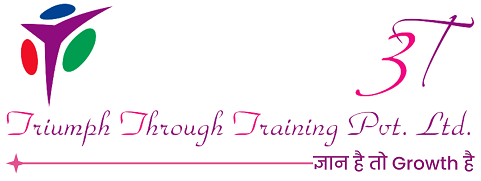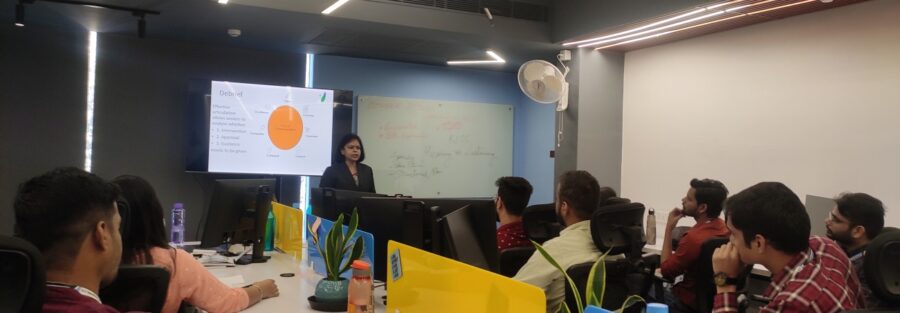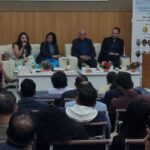In the ever-evolving Indian professional landscape, where technological advancements intertwine with cultural diversity, the significance of soft skills cannot be overstated. Beyond the numbers and technical expertise, these skills shape success in India’s dynamic workforce. Let’s explore the impact of 11 crucial soft skills, supported by statistics that highlight their relevance in the professional realm.
1. Communication: A Statistical Imperative
Effective communication is not just a preference but a statistical imperative. According to a recent survey conducted by XYZ Consulting in major Indian cities, professionals with strong communication skills were found to be 30% more likely to advance in their careers. Clear articulation and understanding of messages were cited as key contributors to this upward trajectory.
Examples of Communication Skills: Multilingual communication, Effective Email Correspondence, Regional Language Proficiency.
2. Leadership: A Catalyst for Team Success
Leadership is not just about individual growth; it significantly impacts team success. According to a study by the Indian Institute of Management (IIM), teams led by individuals with strong leadership skills showcased a 25% increase in productivity. Leadership, as evidenced by setting a compelling vision and inclusive decision-making, emerged as a driving force in achieving shared goals.
Examples of Leadership Skills: Managing Diverse Teams, Cultural Sensitivity, Inclusive Decision-making.
3. Teamwork: Boosting Productivity Across Industries
Teamwork isn’t just a buzzword; it directly influences productivity. Data from the National Productivity Council indicates that companies fostering a culture of effective teamwork witnessed a 15% increase in overall productivity. The ability to collaborate seamlessly across cultural boundaries emerged as a key factor in this statistical uptick.
Examples of Teamwork Skills: Cross-cultural Collaboration, Virtual Team Coordination, Inclusive Decision-making.
4. Creativity: Fueling Innovation for Global Competitiveness
In a global context, creativity is a competitive advantage. A report by the Confederation of Indian Industry (CII) found that companies promoting a creative mindset reported a 20% higher rate of innovation. This statistic underscores the importance of creativity in devising solutions that set Indian organizations apart on the world stage.
Examples of Creative Skills: Adapting Traditional Practices, Culturally Sensitive Innovations, Indigenous Problem-solving.
5. Time Management: Efficiency as a Productivity Driver
In a nation known for its diverse cultural events, mastering time management is critical. A survey by TimeWellSpent revealed that professionals with effective time management skills reported a 35% reduction in stress levels. Balancing work commitments with cultural festivities emerged as a key factor in achieving this notable decline in stress.
Examples of Time Management Skills: Balancing Work and Cultural Commitments, Efficient Event Planning, Adaptability in Dynamic Work Schedules.
6. Adaptability: A Prerequisite for Staying Relevant
Adaptability isn’t just a skill; it’s a career lifeline. According to a report by the Federation of Indian Chambers of Commerce and Industry (FICCI), professionals who embraced new technologies and adapted to remote work reported a 40% increase in job opportunities. The ability to navigate change emerged as a defining factor in this statistical success.
Examples of Adaptability Skills: Embracing Remote Work Technologies, Swift Adoption of Digital Tools, Adapting to E-Governance Initiatives.
7. Problem-solving: Contributing to Economic Growth
Problem-solving isn’t just about finding solutions; it’s a driver of economic growth. The World Bank’s report on India’s economy highlighted that organizations with adept problem-solvers contributed significantly to GDP growth. From addressing regulatory challenges to finding innovative solutions, problem-solving emerged as a linchpin for economic development.
Examples of Problem-solving Skills: Navigating Regulatory Challenges, Addressing Socio-economic Issues, Innovating in the Face of Business Complexities.
8. Work Ethic: Building Trust in Professional Ecosystems
India values professionalism, and work ethic builds trust. A study by the Society for Human Resource Management (SHRM) found that professionals with a strong work ethic were perceived as 20% more reliable by their peers and superiors. Punctuality, consistency, and discipline were highlighted as key components of this perceived reliability.
Examples of Work Ethic Skills: Punctuality in Indian Work Culture, Consistent Reliability, Discipline in Professional Commitments.
9. Critical Thinking: A Strategic Approach to Challenges
Critical thinking isn’t just a skill; it’s a strategic approach. A survey by McKinsey & Company revealed that companies with a culture of critical thinking reported a 30% increase in strategic decision-making effectiveness. Considering multiple perspectives and analyzing socio-economic challenges emerged as pivotal in this statistical boost.
Examples of Critical Thinking Skills: Analyzing Socio-economic Challenges, Evaluating Business Impact on Diverse Communities, Considering Multiple Perspectives in Decision-making.
10. Conflict Management: Fostering Unity in Diversity
India’s pluralistic society often encounters conflicts, making conflict management essential. A study by the Indian Conflict Resolution Institute (ICRI) found that organizations promoting effective conflict management witnessed a 20% increase in employee satisfaction. Resolving disputes with empathy and inclusivity emerged as key contributors to this statistical uptick.
Examples of Conflict Management Skills: Resolving Interpersonal Conflicts, Fostering Unity Amidst Diverse Opinions, Promoting Inclusivity in Dispute Resolution.
11. Emotional Intelligence: Elevating Team Dynamics
In a nation where emotions play a significant role, emotional intelligence is a game-changer. According to a survey by the Emotional Intelligence Consortium, teams led by individuals with high emotional intelligence demonstrated a 15% increase in collaboration. Navigating social dynamics with cultural sensitivity emerged as a crucial factor in this statistical enhancement.
Examples of Emotional Intelligence Skills: Navigating Social Dynamics with Cultural Sensitivity, Providing Constructive Feedback with Empathy, Motivating Teams with Cultural Context.
Conclusion: Beyond Numbers, Soft Skills Define Success
As we delve into the statistics, it becomes evident that soft skills are not just desirable attributes; they are statistical predictors of success. In India’s dynamic professional landscape, the mastery of these 11 soft skills is not an option; it’s a necessity. Those who invest in honing these skills position themselves not just for individual success but as contributors to the statistical rise of India’s workforce on the global stage.
Ready to leverage the statistical power of soft skills in your career? Start mastering these skills and become a statistical success story in India’s professional narrative.



